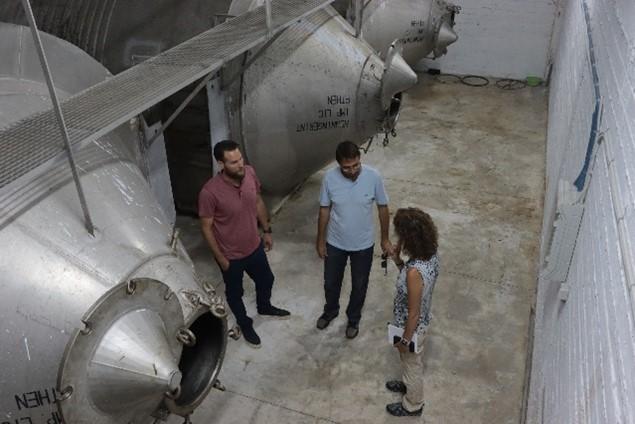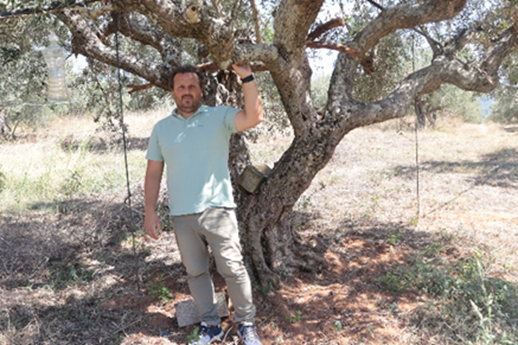Greece: ARTOLIO highlight needs of olive farmers in the region of Kalamata

After her visit to Kalamata, Greece, from the 20th of August to the 24th, ARTOLIO partner Yifat Reuveni provides insight and observations on the needs of the farmers of the ARTOLIO project stationed in Kalamata.

“None of the selected farmers have problems selling their products in Kalamata or even Greece. However, they want to increase quantity, improve even more quality, attract more farmers to join in, and gain knowledge of how to market globally, even just to one market such as the US.”, comments Yifat. They wish to reach and learn more about the premium markets of organic and bio sustainability as well as enter these unique kinds of markets. They show high motivation to do so. Until now most sales were made in bulk, to the detriment of the farmers and the quality of their oil.
They all share the motivation and the need in transforming olive oil business into one compatible with digital technology. They are not afraid of change. That being said, farmers and production in the Kalamata region have unique characteristics. Production is not easy because most of the trees grow around valleys, wadis, and hills. The slops make machinery almost impossible, and production is a bit more expensive due to the terrain conditions. Hence, mechanization cannot be introduced in this area, at least not by any easy means, and they are very dependent on human labor which is very lacking in the area especially during the harvest period.
“And yet, the ARTOLIO Kalamata is a kind of diamond. It has a collection of professional farmers, who do not compromise on quality despite the conditions and costs, and with the potential to attract other farmers to follow them.” They are very aware of environmental issues, (some of them even measure the carbon emissions of their production and the carbon absorption of their trees). Moreover, they are anxious about the blending of their good oil with low-quality oils, and they are slowly switching to organic cultivation and production to receive an organic certificate from the government, and are looking forward to being monitored by official bodies for organic crops. This will allow them to sell at a higher price as organic producers.
The main problem is that their time is limited, and they do not invest enough in branding, marketing, market research, and switching to bottled sales. It is well known that even if a product is perfect, if one doesn’t have the means and the strategies to sell it in a competitive market, the work invested in quality will amount to the enjoyment of family members only.
“To my perspective, the attitude and the story of this area is focusing on producing healthier”. The Kalamata zone is known for its healthy climate and environment: the trees are carbon sinkers, the water in the sea is clean, and there are no heavy industries nearby to pollute the air.
Moreover, Panagiotis Katsaris, the agronomic manager of ARTOLIO Kalamata, prepared a visit in a professional and perfect manner. He knew the terrain and the area very well and was well acquainted with the farmers and the agricultural and business terms. There is a latent perception of team effort underneath the good quality of the product, and a strong sense of community. Panagiotis excelled in communication with all and demonstrated professionalism, seriousness, and relevant experience. It goes to show the extent to which this project is committed to the cause.







